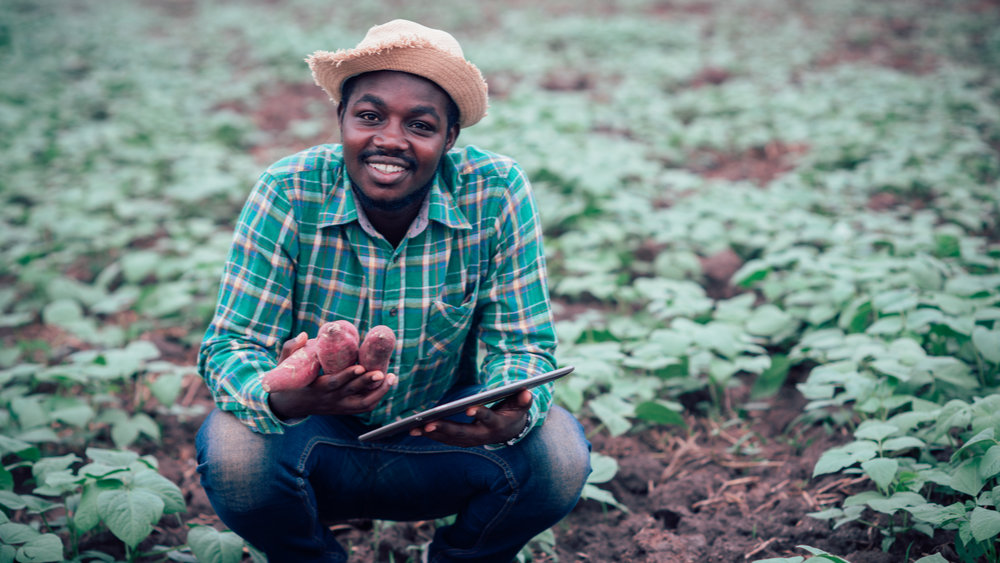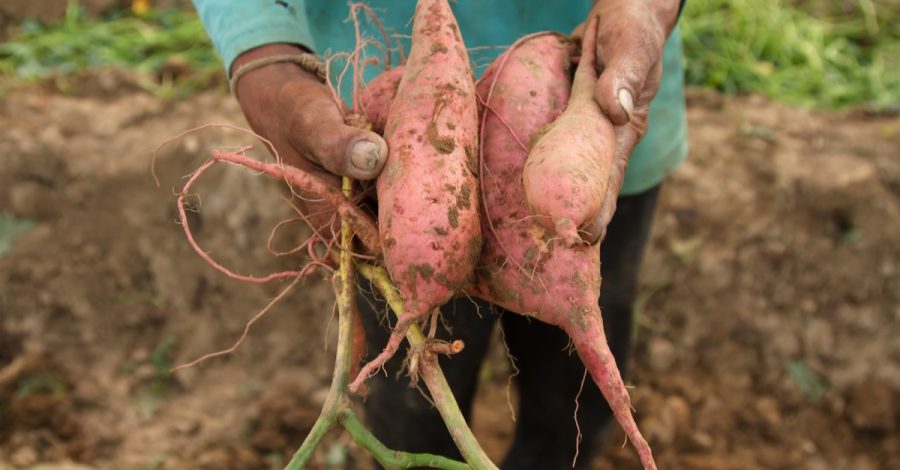The Importance of Agriculture for Meeting the Sustainable Development Goals
The following is a transcript of remarks made by Mr Annan at the Forum for the Future of Agriculture in Brussels, Belgium, 28 March 2017.
Excellencies, distinguished guests, ladies and gentlemen, thank you for your warm welcome
Let me also thank Syngenta and the European Landowners’ Organization for inviting me to join you to celebrate the 10th anniversary of the Forum for the Future of Agriculture.
In just a decade, this forum has become one of the premiere venues to debate vital issues of agriculture, food security, and the environment. We have seen significant progress on these issues over the past few years. Scientific and technological breakthroughs have led to impressive increases in agricultural productivity and reduced hunger around the world. This year, more grain will be harvested than at any time in history. And yet, in this era of plenty, one in nine people do not have enough food to eat. Another two billion may eat, but their meals lack the nutrition necessary for proper health and development. These failures seriously damage life chances for individuals and reduce the potential of communities and economies.
Global population growth and increasing prosperity could increase the demand for food by 50% by 2050. But our planetary boundaries are already reaching their limits. Land and freshwater resources, the very basis of our food production, are under heavy stress, and oceans, forests, and other ecosystems are being degraded at an unprecedented scale. Conflicts over resources and the devastating impacts of climate change risk pushing millions more into abject poverty and hunger. And as always, it is the world’s poorest who suffer most. We see this now in Yemen, South Sudan, Somalia and Northern Nigeria where more than 20 million people are in desperate need of food assistance.
The challenges to feed the world sustainably are huge, but fortunately we are not starting from scratch. With the Sustainable Development Goals, the global community has adopted a compelling vision with ambitious goals. To successfully implement the SDGs, governments of all countries must play a critical role, but it is not their responsibility alone. Fulfilling these ambitions requires an unprecedented effort by all sectors in society, and business must be at the heart of this endeavor. The expectations are high, and so are the opportunities. Across the world, an increasing number of businesses are already looking beyond short-term profit to create value through sustainable solutions for society. Such decisions are not simply motivated by altruism, but rather by a clear understanding that social risks are detrimental to their bottom line.
Far-sighted companies are doing business responsibly and embracing new technologies to deliver on wider goals of development, including improving access to food and clean water, to sanitation, healthcare and education. They are building alliances and partnerships to drive innovation, create jobs, and advance equitable growth. Today, I would like to highlight five priority areas where I believe we need to reshape agriculture and food systems to better feed the world and deliver sustainable development.
First, we need greater investment, particularly in developing countries where the need and potential for increasing agricultural productivity and production are greatest. This would help feed growing populations sustainably, while creating jobs and incomes across rural areas, particularly for young people. One example of this is in Africa, where over the last decade, countries have started to put greater emphasis on investment in agriculture and supporting policies and regulations. Indeed, history shows that increasing agricultural productivity is a critical driver of economic transformation and social development.
Second, we have to make sure that smallholder farmers, who produce nearly 70% of all food consumed worldwide, are at the heart of all our efforts. Government and the private sector can and must form innovative partnerships with farmers’ organizations and smallholders, providing access to better seeds, sustainable farming techniques, and modern technologies. I am glad to know that major companies, including Syngenta, are already providing tools and training to smallholders in Sub-Saharan African and other regions, thereby filling critical gaps along the value chain. It is crucial that the bigger corporations share market access, financing and knowledge with small farmers and local agribusinesses. The greatest success will come if all stakeholders work in close partnership. It is for this reason that my Foundation is working in Africa with leaders from various sectors in an effort to turn smallholders into agro-entrepreneurs and subsistence farms into profitable businesses.
Third, we must ensure that agriculture and food systems become nutrition-smart, because it’s not just about the amount of food we grow, it’s also about the type of food that we consume. For we are what we eat. Evidence shows that nutrition is crucial for economic growth as better nourished populations are more productive. We need governments to urgently adopt the right policies and mobilize resources to scale-up nutrition. The food industry must support these efforts by providing consumers with access to more nutritious foods. Scientific research and innovation is equally important in this context. In Ghana, my wife and I have seen first-hand the wonderful impact of biofortified Vitamin A-rich sweet potatoes in helping address stunting in children and improving the health of pregnant women and mothers.
Fourth, we need food systems that produce more food but with fewer resources as we are reaching a point where our capacity to meet current and future needs is seriously jeopardized. Governments have to adopt, enforce and strengthen policies that promote responsible natural resource management and prevent the loss of natural habitats, forests and biodiversity. I am glad that the European Landowners’ Organization and other institutions are promoting a balanced approach between economic performance and a sustainable use of natural resources. It is crucial that businesses source, process and manage resources efficiently to meet growing demand, while preserving our environment and climate. This must include responsible water stewardship, striving for zero waste and using energy resources more sustainably.
Fifth, we must seize this moment to push for climate-smart agriculture and food systems. Cutting down agriculture’s climate footprint and shifting towards renewable energy sources will not only help to avert climate catastrophe, but also create new opportunities for investment, growth and employment. At the same time, we need to strengthen farmers’ resilience to climate-related shocks, including through weather information systems and crop insurance programmes.
Ladies and Gentlemen, I recognize that this is an ambitious agenda. There are many challenges to overcome, but shifting to sustainable food systems and agriculture is possible if sustained and bold leadership from every sector can be ensured. We have the expertise, the technologies and the evidence needed to succeed. Let us all – business, the public sector and civil society – live up to this grave responsibility. I have often said that healthy and prosperous societies are built on three pillars: peace and security, inclusive development, and the rule of law and respect for human rights. There can be no long-term peace and security without development. There can be no long-term development without peace and security. And no society can long prosper without respect for the rule of law and human rights. So let us turn aspiration into action and build a food secure, sustainable, and prosperous world founded on these pillars of progress.
Thank you.



